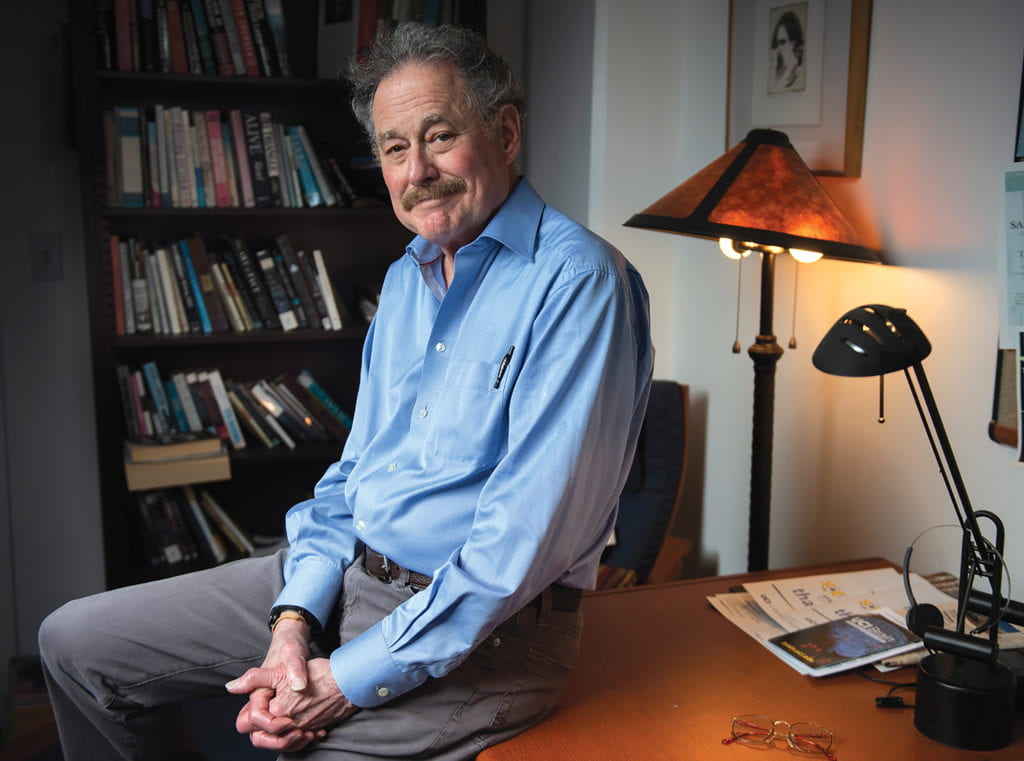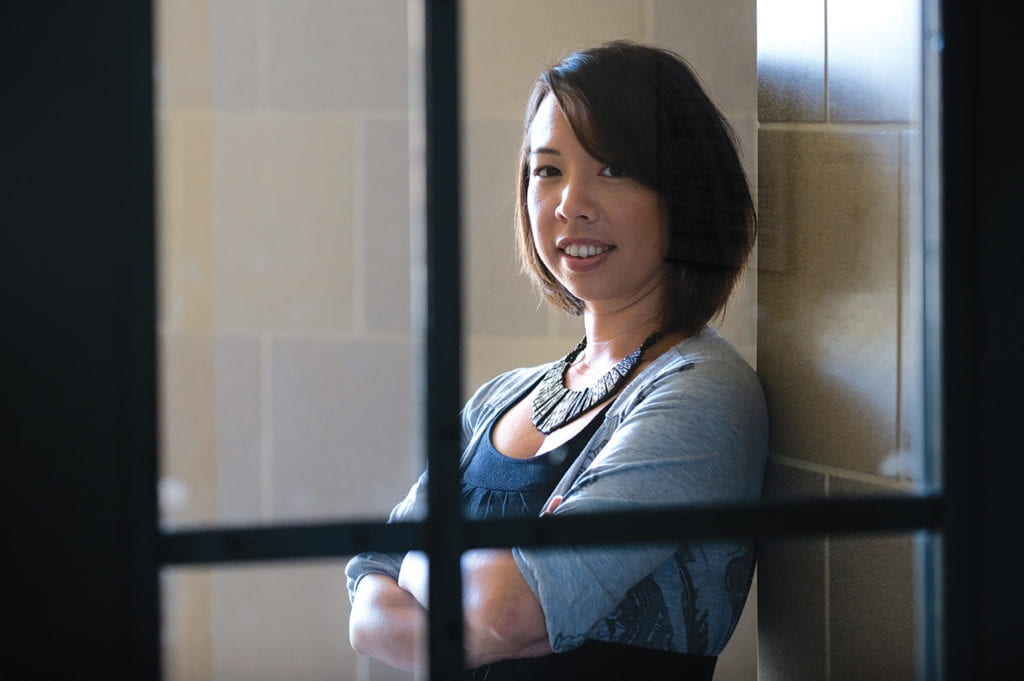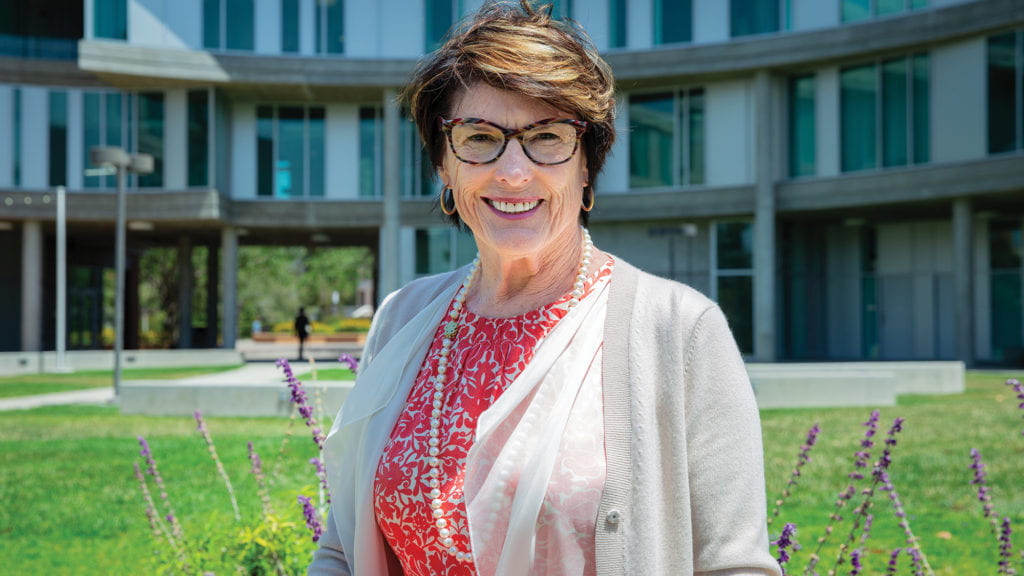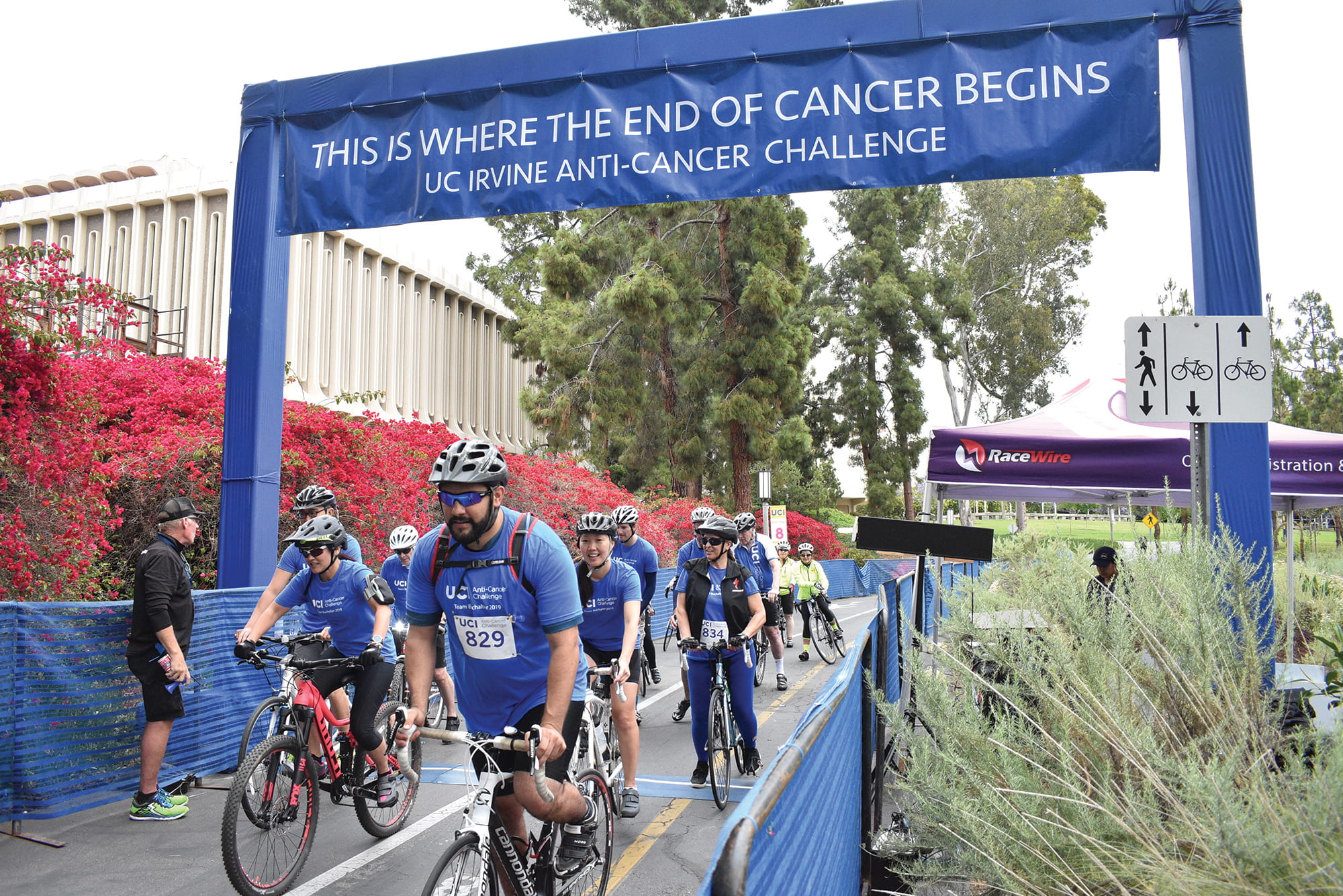Do Tell
UCI’s Center for Storytelling Aims to Help Individuals Express Their Own Narratives
The word “storytelling” may bring to mind images of pastel-hued Hollywood fairy tales or of early humans around a campfire, concocting myths to make sense of the world and their place in it. The people envisioning the UCI Center for Storytelling, however, have a fantasy-free brand of storytelling in mind.
It’s the brainchild of the School of Humanities’ literary journalism faculty, including director Barry Siegel, who describes the future center as a public extension of their program in narrative nonfiction writing.

“What we teach is journalism founded on boots-on-the-ground, crammed-notebook reporting but told using the techniques of the finest fiction – using the elements of storytelling to engage readers,” Siegel says.
Aside from rooting the tales in facts, he says, the aim isn’t that different from what our distant relatives did around the campfire.
“Humans are hard-wired for storytelling, and we here believe very much in the power and effectiveness of it,” Siegel says. “Telling true stories helps us to understand ourselves and connect with others, to shape our memories, and to make sense of our world – especially today, when stories are also being used to divide us.”
It’s the sort of writing that earned him a Pulitzer Prize and numerous other awards over an illustrious career, much of it with the Los Angeles Times. He has directed UCI’s literary journalism program – the first of its kind in the nation – since its inception more than 15 years ago.
A Place for Everyone
The intent of a future Center for Storytelling is to make the insights and tools he and the faculty impart to students available to others on campus and to the community at large.
“I see it as a place where we’re sharing some of the lessons we teach on a daily basis with anybody who’s interested in telling a story that matters to them,” Siegel says.
“How can a scientist convey her research to the public in a way that captures the importance of her work? Great scientists aren’t necessarily natural storytellers, but we can help with that. How does a public health worker illuminate a local crisis in a manner that evokes empathy and urgency? How can ordinary individuals – students, retirees, schoolteachers, parents – express themselves in ways that engage the public on issues that they’re passionate about? We can help,” he says.
The center would also be there for people who wish to compose their memoirs or family histories or to create a record of what they’re going through and feeling at this turbulent point in history.

Whatever is making headlines is also rippling through everyday life, notes Erika Hayasaki, an associate professor in the literary journalism program. “Whether it’s hunger, homelessness, race relations, immigration or other issues, people on campus and in the community are experiencing a lot of it, and they want to write about it,” she says.
Hayasaki’s first published story, penned in high school, was certainly on a subject close to her: the murder of a friend. She subsequently wrote for a teen newspaper published by The Seattle Times, majored in journalism at the University of Illinois, and wound her way to the Los Angeles Times and then to UCI.
Much of her award-laden career has entailed covering medical and scientific subjects seemingly unlikely to catch a reader’s interest. Hayasaki says the trick is to approach such stories the same way one would a novel:
“You look for the fundamental things: the voice you use, the characters involved, how you interview and use quotes, a moment of insight, the path of how you’re moving through the timeline to some sort of climax or ending point – all those kind of things.”
An Introductory Event
Siegel says the center would likely launch in stages, with the first one being a “drop-in storytelling lab” on campus, where anyone with something to say can find help saying it. Ideally, he notes, it will have two adjoining rooms – one with computers, projectors, tablet docks, work tables for design projects and other tools; and the other with the equipment and soundproofing materials necessary for creating podcasts, oral histories, livestreams and other nonprint media.
But at this juncture, the center is more of a story in the making than a finished manuscript: “We mainly exist on paper right now,” Siegel says. The facility’s corporeal form is dependent upon donor funding (the goal is to raise $500,000) and that near-mythical thing on the UCI campus: available space in which to locate.
On the financial front, the literary journalism program will host an Oct. 26 event for the public and potential benefactors called “Telling Stories That Matter,” with Siegel, Hayasaki and fellow faculty members Amy Wilentz, Miles Corwin, Hector Tobar and Amy DePaul participating.
“Rather than just sitting on a stage and talking, we’re going to offer something like a one-day university,” Siegel promises, “running workshops to show some of the techniques we use and teach in our programs, such as memoir writing, profile writing, opinion writing, the art of interviewing and archival research.”

Though rooted in the factual world, the future Center for Storytelling does have a fairy godmother, in the form of LaVonne Smith ’94. A longtime supporter of UCI’s School of Humanities, she gave the facility its initial $10,000, which Siegel says can go a long way toward equipping the drop-in lab.
Smith had left college in the early 1960s to work, marry and raise five children before enrolling at UCI three decades later. She has a hearing loss of more than 90 percent, and at the time, many universities made no accommodation for that. UCI, however, arranged for honor students to augment Smith’s lip-reading skills by taking notes for her in class, enabling her to earn a B.A. in humanities. She has remained engaged with the campus ever since, serving on boards, supporting a variety of programs and endowments, hosting events in her home and more.
“I am a proud, proud Anteater,” Smith says. “I get more from UCI than I ever give it. The School of Humanities has been so successful in helping people from all walks of life.
“The storytelling center is right in line with that. Everyone has a story to tell, and writing it changes a person, and it’s always possible that their story can begin to change the world.”
Hayasaki voices a similar sentiment: “One of my editors said all you can do is just part the curtain on humanity a little. If you start writing with the thought ‘I’m going to save the world,’ or even affect policy, with your story, you’ll probably be disappointed. But writers can sometimes create little moments in stories that resonate with people. They remember them. They think about them, and maybe that at least opens the door to the possibility of making things better.”



